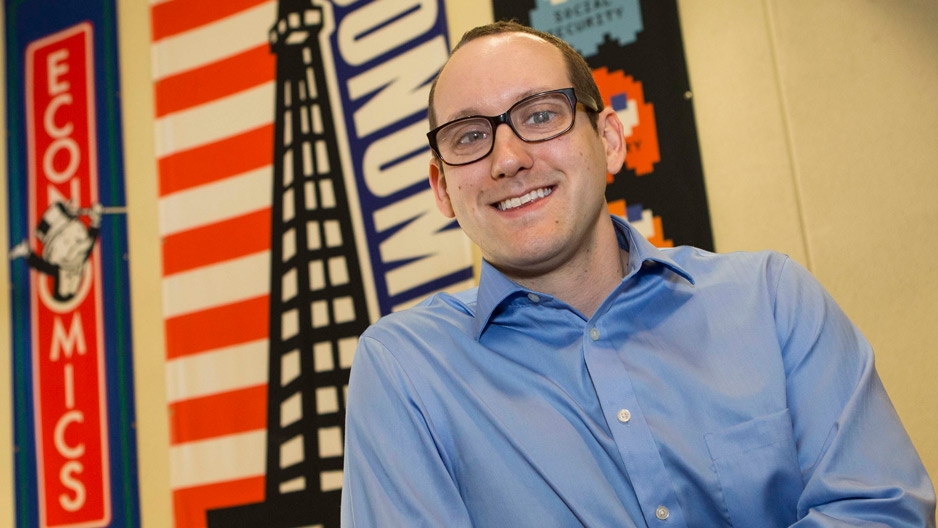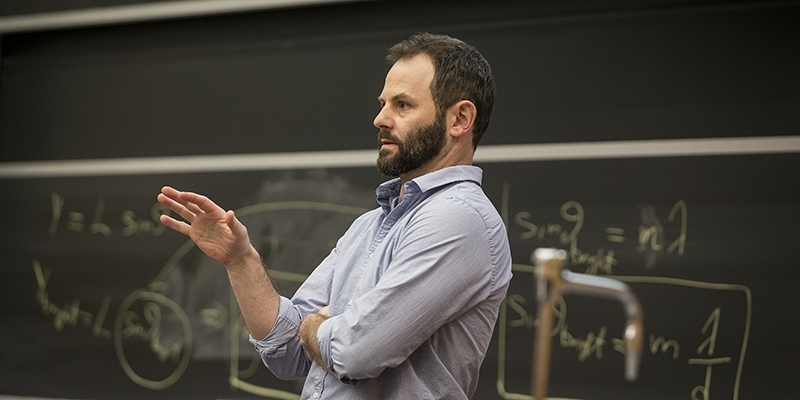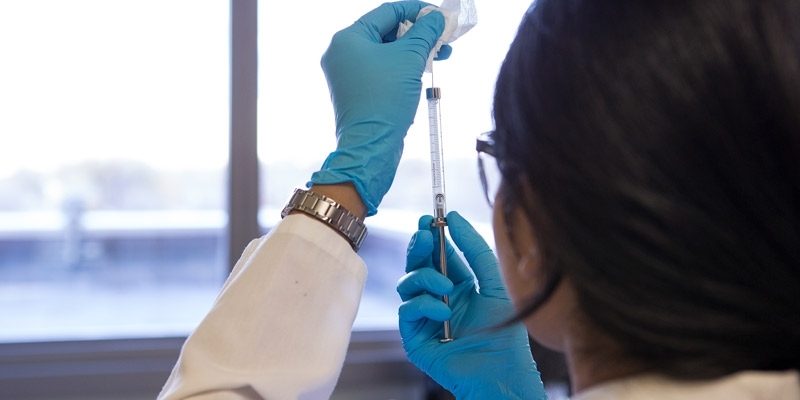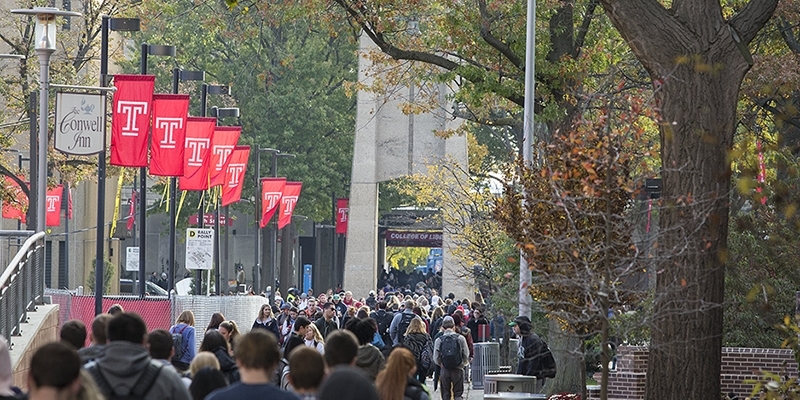Posted June 9, 2017
Research shows economic value of a college degree
Temple economist Douglas Webber talks about his new research on the value of college education.

Photography By:
Joseph V. Labolito
Temple’s Douglas Webber is a labor economist who studies the economics of higher education.
Few young faculty members at Temple have joined the national discussion faster than Douglas Webber, who came to the economics department in Temple’s College of Liberal Arts after earning his PhD from Cornell University in 2012. Since then, the labor and higher-education economist has testified before the U.S. Senate on institutional risk-sharing, been interviewed four times by The Chronicle of Higher Education on subjects ranging from the presidential candidates’ messaging on higher ed to the value of a college degree, and had columns in FiveThirtyEight, including one on the reasons tuition is increasing at public universities (hint: it’s not fancy residence halls). We caught up with him weeks before a major paper he co-authored was set to be published.
Temple Now: You’re a labor economist who has examined earnings inequality and economic mobility. But lately you’ve been doing something a bit different.
Doug Webber: Yes, my biggest area of research lately—and what I’m most excited about—is the economics of higher education. I’ve written articles about everything from the economic returns of college degrees in different majors to the student loan market.
TN: We hear you have a higher-ed economics article coming out soon that’s a bit of a big deal.
DW: The Journal of Labor Economics will be publishing a paper I co-authored with Ben Ost and Victor Pan at the University of Illinois at Chicago. In recent years I’ve been focusing on the value of a college degree. This article explores the value of a degree for students who are having academic challenges. That’s important because some policymakers argue that we shouldn’t invest in retention efforts that boost graduation rates for these students. They claim these students would be better off dropping out of school. So we calculated the returns of a college degree for every student at a public college or university in Ohio who’s on academic probation—students whose GPAs put them just on the edge of being dismissed from school. This paper offers the first causal evidence that, even for these students, staying in school and persisting in college has huge benefits—at least $500,000 over the course of a lifetime, even if you take into account factors like student debt.
TN: What do you think about Temple’s Fly in 4 graduation pact, an initiative that encourages students to graduate on time and was recently covered in The Wall Street Journal?
DW: I love it. Temple’s Fly in 4 initiative is grounded soundly in research. We know that the majority of the benefits of a college education are concentrated in graduation. There is a massive difference in your earnings outcome if you’re going from 119 credits and no college degree to 120 credits and a degree. The most innovative part about Fly in 4 is the need-based grants, which essentially pay students with the greatest financial need not to work too much outside of school. Research has shown that there may be a beneficial effect of working a little bit while you're in school—up to 15 hours a week. But working more than that can delay graduation, one of the top causes of student debt.
TN: It’s admissions season. Paying for college and avoiding debt are on the mind of many students right now. As a higher-ed economist, any advice?
DW: The research is clear. Two simple tips: Whatever you do, get that degree and get it as soon as you can.
TN: What attracted you to Temple?
DW: There’s a sense of momentum at Temple, at the College of Liberal Arts and in my department. Economics recently hired a handful of young, active, tenure-track faculty members, and we’re hiring four or five more soon. That’s a big deal for our students. This is a time of stagnation nationwide when it comes to faculty hiring. Not at Temple. The university has been averaging about 50 new tenured or tenure-track faculty hires a year since 2004.
TN: Who are the newcomers?
DW: My newest colleagues are Moritz Ritter, a macroeconomist whose recent work focuses on international trade; Dai Zusai, a game theorist who does more theoretical, mathematical economics; Pedro Silos, who came to us from the Federal Reserve; Martine Lopez-Daneri, another macroeconomist, will start later this year. And then there’s Catherine Maclean, my wife.
TN: Your wife?
DW: Catherine and I met over the romance of math camp, the intensive math immersion that kicked off our doctoral program at Cornell. She’s a health economist who studies the market for healthcare, both the supply side (the market for things like health insurance) and the demand side (the things that impact public health, such as smoking).


